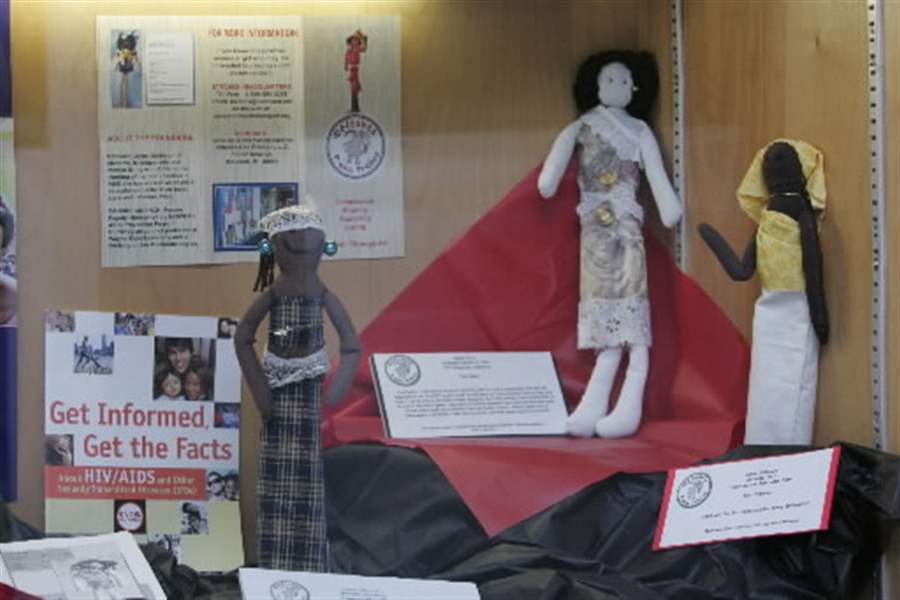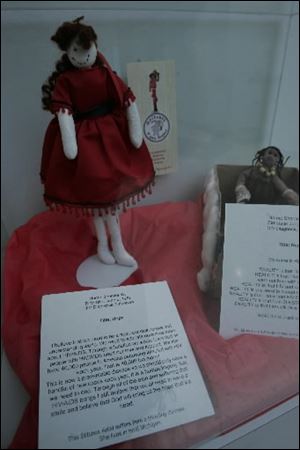
Doll exhibit in Bedford is deemed effective way to inform
1/20/2009
The project is on display at Monroe County Community College's Whitman Center in Bedford.

Personal stories accompany some of the dolls on display.
LAMBERTVILLE Stitches Doll Project began as an outlet for women living with HIV/AIDS to express their feelings about the disease and give a voice to its silent and often unknown victims.
But Kathleen Gerus-Darbison, co-founder of Stitches, said the dolls and accompanying stories about the artists who created them have become an effective tool to inform others.
The dolls are safe. They can tell stories in ways that don t threaten people, said Mrs. Gerus-Darbison.
Eleven of the dolls in the traveling exhibit will be displayed in cases at the Monroe County Community College s Whitman Center through Jan. 28, when Mrs. Gerus-Darbison will host a lunch and learn program to talk about challenges facing women and girls living with HIV.

The project is on display at Monroe County Community College's Whitman Center in Bedford.
She said she plans to bring additional dolls to the campus for the informal discussion.
Mrs. Gerus-Darbison was infected with HIV nearly 24 years ago by her first husband, a hemophiliac who had contracted the disease from contaminated blood. Shortly after her husband died in 1992, she was diagnosed with AIDS, but with the help of antiviral drugs is today healthy.
For years I didn t make plans for a vacation because I didn t know that I would be alive, said Mrs. Gerus-Darbison, who remarried in 1998.
Stitches Doll Project began in 1999 when Mrs. Gerus-Darbison, 50, and her collaborator, Candice Moench, sent out a handful of Bendi dolls to women infected with HIV. Some of the women they knew personally from their work as AIDS activists.
Ms. Moench, deputy director at the Midwest AIDS Prevention Project in Ferndale, Mich., and Mrs. Gerus-Darbison, then a community educator at the project, wanted to create awareness of the issues that face women with AIDS.
The $3 dolls included a request that the women write a message on what the doll would say if she could talk.
The dolls that were returned became a traveling display.
Word of the project spread. It got a big boost when POZ magazine published an article in 2000, inspiring interest groups to host the project and generating requests for dolls from HIV-positive women.
The collection has grown to 140 dolls, and contributors range from an 84-year-old Detroit great-grandmother who contracted HIV from her late husband, an intravenous drug user, to a 6-year-old girl who was born with the virus.
Mrs. Gerus-Darbison, who is currently enrolled in a master s program at the University of Windsor, said the project has gained momentum without taxpayer funds or grants and has traveled throughout the country through private donations.
It is a simple project that doesn t cost a lot of money, she said.